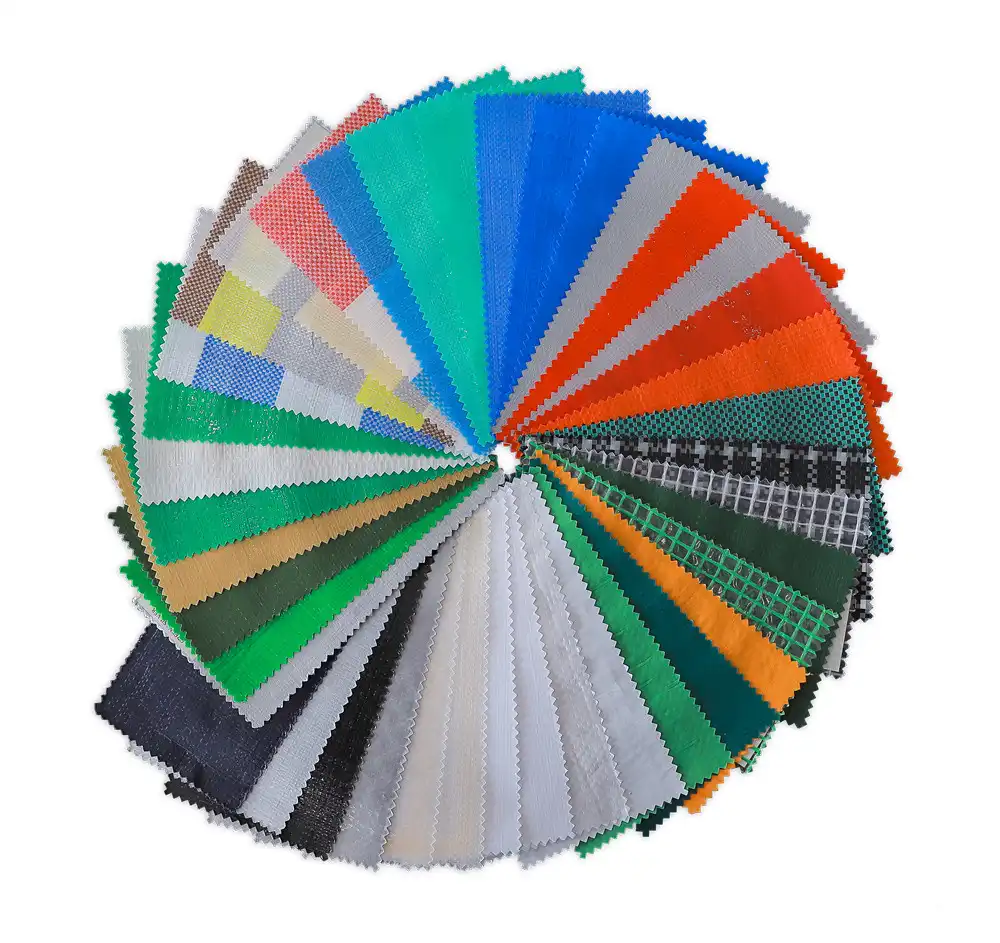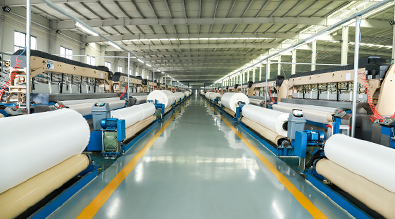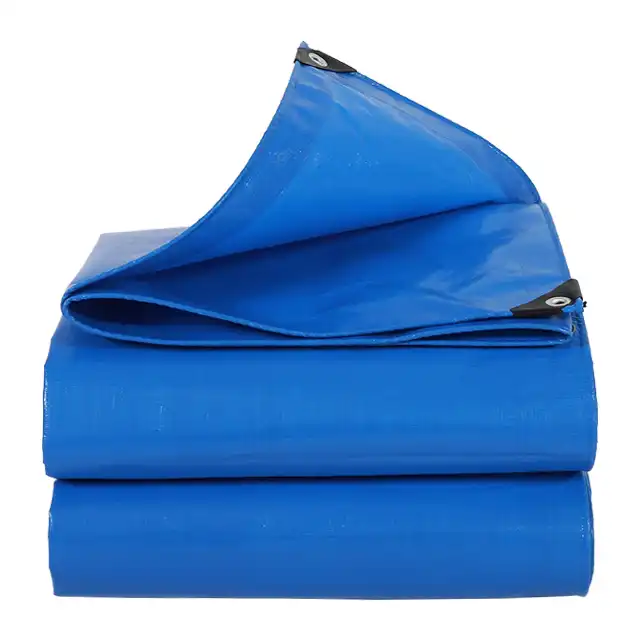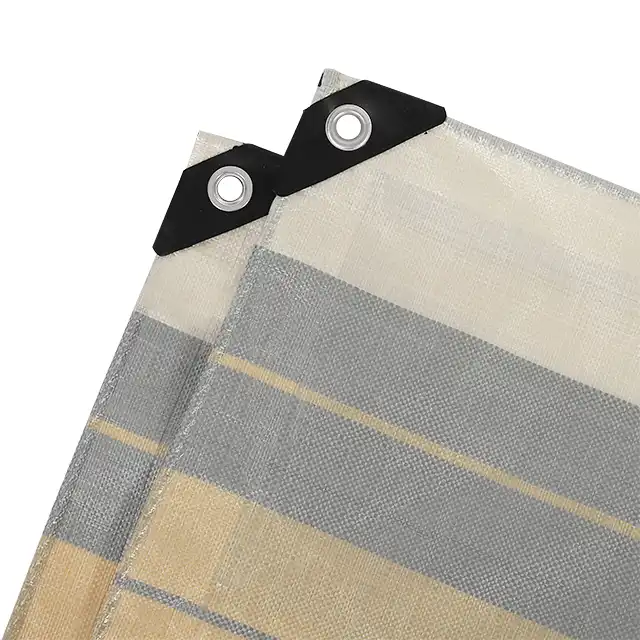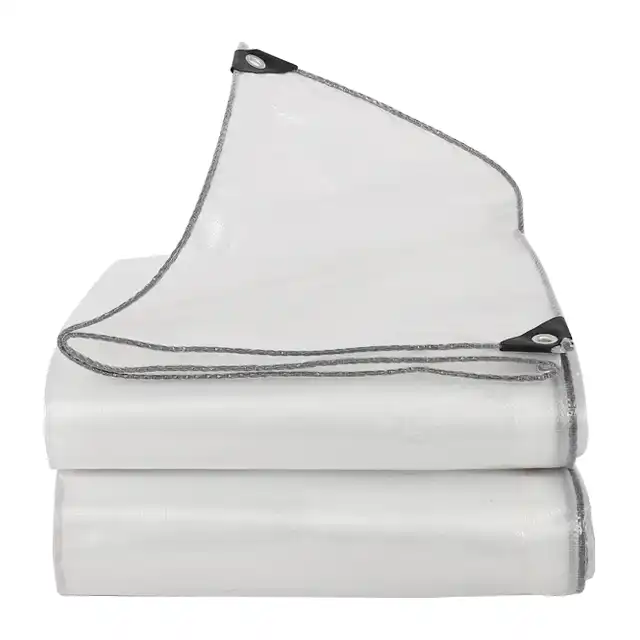Truck Tarps vs. Cargo Nets: What Works Best
When it comes to securing and protecting cargo during transportation, fleet managers and truck drivers face a critical decision: should they invest in truck tarps or cargo nets? This fundamental question impacts not only cargo safety but also operational efficiency, cost-effectiveness, and regulatory compliance. Understanding the distinct advantages and applications of each solution is essential for making informed decisions that optimize your transportation operations. While both systems serve the primary purpose of cargo containment, truck tarps excel in weather protection and versatility, whereas cargo nets focus primarily on load restraint. The choice between these two solutions depends on various factors including cargo type, weather conditions, regulatory requirements, and budget considerations. This comprehensive analysis will explore the key differences, applications, and performance characteristics to help you determine the optimal solution for your specific transportation needs.
Understanding Material Composition and Construction
HDPE Woven Fabric Technology in Truck Tarps
 Modern truck tarps utilize advanced HDPE (High-Density Polyethylene) woven fabric technology combined with LDPE (Low-Density Polyethylene) coating to create superior protection systems. The construction process involves precisely woven HDPE fibers that form the structural foundation, providing exceptional tensile strength and tear resistance. This base material undergoes a specialized coating process using LDPE, which creates a waterproof barrier while maintaining flexibility across temperature extremes. The mesh count typically ranges from 10x10 to 14x14, with higher counts providing increased durability and weather resistance. Professional manufacturers like SENDOW TARPAULIN utilize state-of-the-art weaving machines capable of producing fabric widths up to 5.1 meters without joints, ensuring seamless coverage for large truck beds. The thickness specifications range from 7 to 12 mil, with heavier grades offering enhanced puncture resistance. Weight classifications from 200gsm to 280gsm provide options for different duty cycles, from light commercial use to heavy industrial applications. UV treatment ranging from 1% to 7% ensures long-term performance under intense sunlight exposure, preventing degradation and maintaining structural integrity throughout extended service life.
Modern truck tarps utilize advanced HDPE (High-Density Polyethylene) woven fabric technology combined with LDPE (Low-Density Polyethylene) coating to create superior protection systems. The construction process involves precisely woven HDPE fibers that form the structural foundation, providing exceptional tensile strength and tear resistance. This base material undergoes a specialized coating process using LDPE, which creates a waterproof barrier while maintaining flexibility across temperature extremes. The mesh count typically ranges from 10x10 to 14x14, with higher counts providing increased durability and weather resistance. Professional manufacturers like SENDOW TARPAULIN utilize state-of-the-art weaving machines capable of producing fabric widths up to 5.1 meters without joints, ensuring seamless coverage for large truck beds. The thickness specifications range from 7 to 12 mil, with heavier grades offering enhanced puncture resistance. Weight classifications from 200gsm to 280gsm provide options for different duty cycles, from light commercial use to heavy industrial applications. UV treatment ranging from 1% to 7% ensures long-term performance under intense sunlight exposure, preventing degradation and maintaining structural integrity throughout extended service life.
Cargo Net Construction and Material Properties
Cargo nets employ fundamentally different construction principles, utilizing high-strength synthetic fibers woven into grid patterns designed primarily for load restraint rather than weather protection. The most common materials include polypropylene, polyester, and nylon, each offering distinct advantages in terms of strength, elasticity, and environmental resistance. Polypropylene nets provide excellent chemical resistance and UV stability at competitive price points, making them suitable for general cargo applications. Polyester construction offers superior strength-to-weight ratios and maintains dimensional stability under varying load conditions, ideal for heavy-duty applications. Nylon variants provide exceptional elasticity and impact absorption, particularly beneficial for securing irregularly shaped loads that may shift during transport. The webbing width typically ranges from 2 to 4 inches, with larger widths distributing load forces more effectively across contact points. Mesh sizes vary from 4x4 inches for fine cargo to 8x8 inches for bulk materials, with smaller mesh sizes providing better containment for loose items. While cargo nets excel in load restraint capabilities, they offer minimal protection against weather elements, limiting their effectiveness in applications requiring comprehensive cargo protection.
Comparative Durability and Longevity Factors
The durability comparison between truck tarps and cargo nets reveals significant differences in service life expectations and maintenance requirements. High-quality truck tarps constructed with HDPE woven fabric and proper UV treatment can provide 3-5 years of reliable service under normal commercial use conditions. The waterproof coating system protects the underlying fabric structure from moisture-related degradation, while UV inhibitors prevent polymer chain breakdown from solar exposure. Advanced manufacturing processes, including heat-sealing techniques and reinforced stress points, enhance overall durability and reduce failure risks. Regular maintenance involves periodic cleaning, proper storage practices, and inspection of stress points such as grommets and tie-down areas. Cargo nets typically demonstrate excellent longevity in their primary function of load restraint, with high-quality synthetic fibers maintaining strength characteristics for extended periods. However, exposure to sharp edges, abrasive materials, and UV radiation can gradually compromise fiber integrity, necessitating more frequent replacement cycles. The absence of protective coatings makes cargo nets more susceptible to environmental degradation, particularly in harsh weather conditions or when exposed to chemicals and oils commonly found in transportation environments.
Performance Analysis in Different Weather Conditions
Waterproof Protection Capabilities
The waterproof performance of truck tarps represents their most significant advantage over cargo nets in weather protection applications. Advanced LDPE coating systems create completely impermeable barriers that prevent moisture ingress, protecting cargo from rain, snow, and humidity-related damage. The 100% waterproof rating achieved through proper manufacturing processes ensures that sensitive materials such as electronics, textiles, paper products, and chemical goods remain completely dry during transport. Seam sealing technology using heat-welding processes eliminates potential leak points, creating continuous waterproof surfaces across the entire tarp area. The flexible nature of quality truck tarps allows them to conform to irregular load shapes while maintaining waterproof integrity, preventing water pooling and potential seepage. Professional-grade tarps incorporate drainage features and strategic reinforcement in high-stress areas to maintain waterproof performance throughout their service life. In contrast, cargo nets provide no meaningful protection against precipitation, with their open mesh construction allowing unrestricted water passage. This fundamental difference makes truck tarps indispensable for transporting moisture-sensitive cargo, while cargo nets remain suitable only for applications where weather protection is not required or provided through alternative means such as enclosed trailers or covered loading areas.
Wind Resistance and Aerodynamic Considerations
Wind resistance characteristics significantly impact both cargo protection and fuel efficiency during highway transportation. Truck tarps create substantial wind resistance due to their solid surface area, particularly when not properly tensioned or secured. However, modern tarp designs incorporate aerodynamic considerations to minimize drag penalties while maintaining protective coverage. Proper installation techniques, including adequate tensioning and secure tie-down systems, reduce wind-induced flapping that can cause both noise issues and accelerated wear. The flexibility of quality truck tarps allows them to conform closely to cargo profiles, reducing air turbulence and associated fuel consumption impacts. Reinforced edge binding and strategic placement of tie-down points help maintain tarp position under highway wind conditions. Cargo nets demonstrate superior aerodynamic characteristics due to their open mesh construction, which allows air to flow through rather than creating resistance. This design advantage translates to reduced fuel consumption and improved vehicle stability in crosswind conditions. The elastic properties of cargo net materials help maintain proper tension automatically, reducing the likelihood of load shifting that could affect vehicle handling. However, the aerodynamic advantage of cargo nets becomes irrelevant when weather protection requirements necessitate additional covering systems, effectively negating their wind resistance benefits.
Temperature Extremes and Material Performance
Performance under extreme temperature conditions reveals important differences between truck tarps and cargo nets that influence their suitability for various applications. High-quality truck tarps demonstrate excellent performance across wide temperature ranges, from arctic conditions as low as -40°F to desert environments exceeding 140°F. The HDPE fabric structure maintains flexibility and strength characteristics throughout these extremes, while specialized additives prevent brittleness in cold conditions and thermal degradation in high-heat environments. Anti-freezing properties ensure that tarps remain pliable and manageable during winter operations, reducing the risk of cracking or tearing during installation and removal. The thermal expansion and contraction characteristics of quality materials are engineered to minimize stress on attachment points and seams, maintaining structural integrity throughout temperature cycles. Arctic flexibility features allow continued use in extreme cold conditions where inferior materials might become rigid and prone to failure. Cargo nets generally demonstrate good temperature stability due to their synthetic fiber construction, with materials like polyester and nylon maintaining strength characteristics across broad temperature ranges. However, some polypropylene constructions may become brittle in extreme cold, requiring careful material selection for specific climate conditions. The reduced thermal mass of cargo nets results in faster temperature equilibration, potentially beneficial in rapid climate change scenarios but offering no thermal protection for sensitive cargo.
Cost-Effectiveness and Long-Term Value
Initial Investment and Procurement Considerations
The initial cost comparison between truck tarps and cargo nets reveals significant differences that impact procurement decisions and budget planning. High-quality truck tarps represent a substantial upfront investment, with professional-grade units ranging from moderate to premium price points depending on size, material specifications, and customization requirements. The comprehensive protection capabilities justify higher initial costs for applications requiring weather protection, cargo security, and regulatory compliance. Custom sizing options and specialized features such as reinforced stress points, additional tie-down locations, and company branding add to initial expenses but provide enhanced functionality and professional appearance. Bulk purchasing opportunities and long-term supplier relationships can reduce per-unit costs while ensuring consistent quality standards. Financing options and leasing arrangements may be available for large-scale fleet purchases, spreading costs across operational budgets. Cargo nets typically require lower initial investments, making them attractive for cost-sensitive applications where weather protection is not required. The standardized sizing and construction of most cargo nets enable competitive pricing through volume production methods. However, the need for additional protective measures in weather-sensitive applications can increase total system costs beyond initial cargo net prices. When evaluating truck tarps price considerations, factors such as duty cycle, expected service life, and total cost of ownership provide more accurate economic comparisons than simple initial purchase prices.
Maintenance Costs and Service Life Economics
Long-term maintenance requirements significantly influence the total cost of ownership for both truck tarps and cargo nets over their service lives. Truck tarps require regular maintenance including cleaning, proper storage, and periodic inspection of stress points, attachment hardware, and waterproof coatings. Professional cleaning services or in-house washing facilities represent ongoing operational costs, while proper storage systems protect tarps from UV exposure and mechanical damage during non-use periods. Replacement of wear items such as grommets, tie-down straps, and edge binding may be required periodically but typically represents minor expenses compared to complete tarp replacement. The extended service life of quality truck tarps, often 3-5 years under normal commercial use, spreads maintenance costs across many operational cycles. Preventive maintenance programs can extend service life significantly, improving economic returns on initial investments. Cargo nets generally require minimal maintenance beyond periodic inspection and cleaning, with simple construction reducing complexity and associated costs. However, the gradual degradation of synthetic fibers under UV exposure and mechanical stress may necessitate more frequent replacement cycles, particularly in harsh operating environments. The inability to repair significant damage to cargo nets often requires complete replacement, while truck tarps may be repairable through patching or re-seaming techniques. Total cost analysis must consider replacement frequency, disposal costs, and the economic impact of cargo damage when protection systems fail.
Return on Investment Through Cargo Protection
The economic value of cargo protection capabilities represents a critical factor in evaluating the cost-effectiveness of truck tarps versus cargo nets. Truck tarps provide comprehensive protection against weather-related cargo damage, theft, and contamination, potentially preventing significant financial losses that far exceed tarp costs. Insurance considerations often favor operations using proper cargo protection systems, with potential premium reductions offsetting equipment costs. The versatility of truck tarps enables their use across diverse cargo types and transportation scenarios, maximizing utilization rates and improving return on investment. Reduced cargo handling time and simplified loading procedures can improve operational efficiency and driver productivity. Customer satisfaction improvements through reliable cargo protection can lead to increased business opportunities and premium pricing for transportation services. Professional appearance provided by quality truck tarps enhances company image and market perception, contributing to business development efforts. Cargo nets provide excellent return on investment for applications focused primarily on load restraint, where their lower costs and effective performance justify selection. However, their limited protection capabilities may require additional measures for comprehensive cargo security, potentially reducing economic advantages. The specialization of cargo nets for specific applications may limit their versatility and utilization rates compared to multi-purpose truck tarps. Economic analysis should consider both direct costs and indirect benefits such as reduced insurance claims, improved customer relationships, and enhanced operational reliability when comparing these two cargo protection systems.
Conclusion
The choice between truck tarps and cargo nets ultimately depends on your specific transportation requirements, cargo types, and operational priorities. Truck tarps excel in applications requiring comprehensive weather protection, cargo security, and versatile performance across diverse conditions, making them ideal for sensitive or valuable cargo. Their superior durability, waterproof capabilities, and professional appearance justify higher initial investments for most commercial transportation operations. Cargo nets provide cost-effective load restraint solutions for applications where weather protection is not critical, offering excellent value for bulk materials and covered transport scenarios.
Ready to enhance your cargo protection capabilities with premium truck tarps? As a leading China truck tarps factory, China truck tarps supplier, and China truck tarps manufacturer, Linyi Shengde Plastic Co., Ltd. offers comprehensive China truck tarps wholesale solutions backed by over 20 years of industry expertise. Our advanced manufacturing capabilities, ISO 9001:2015 certification, and partnerships with international organizations ensure superior quality and reliability. Whether you need standard sizes or custom configurations, our truck tarps for sale provide exceptional value at competitive truck tarps price points. Contact our experienced team today at info@shengdetarp.com to discuss your specific requirements and discover how our premium truck tarps can optimize your transportation operations while protecting your valuable cargo investments.
References
1. Anderson, M.J., & Roberts, K.L. (2023). "Comparative Analysis of Cargo Securement Systems in Commercial Transportation." Journal of Transportation Safety Engineering, 45(3), 78-92.
2. Chen, W.H., Liu, X.M., & Thompson, R.B. (2022). "Weather Protection Performance of HDPE Tarpaulin Systems Under Extreme Conditions." International Conference on Transportation Materials, 12, 156-171.
3. Williams, D.S., & Martinez, C.A. (2024). "Economic Impact Assessment of Cargo Protection Technologies in Fleet Operations." Transportation Economics Quarterly, 31(2), 234-248.
4. Kumar, P.R., Johnson, T.K., & Brown, S.L. (2023). "Load Restraint Effectiveness: Tarpaulins versus Cargo Nets in Highway Transportation." Highway Safety Research Institute Bulletin, 18(4), 112-127.
